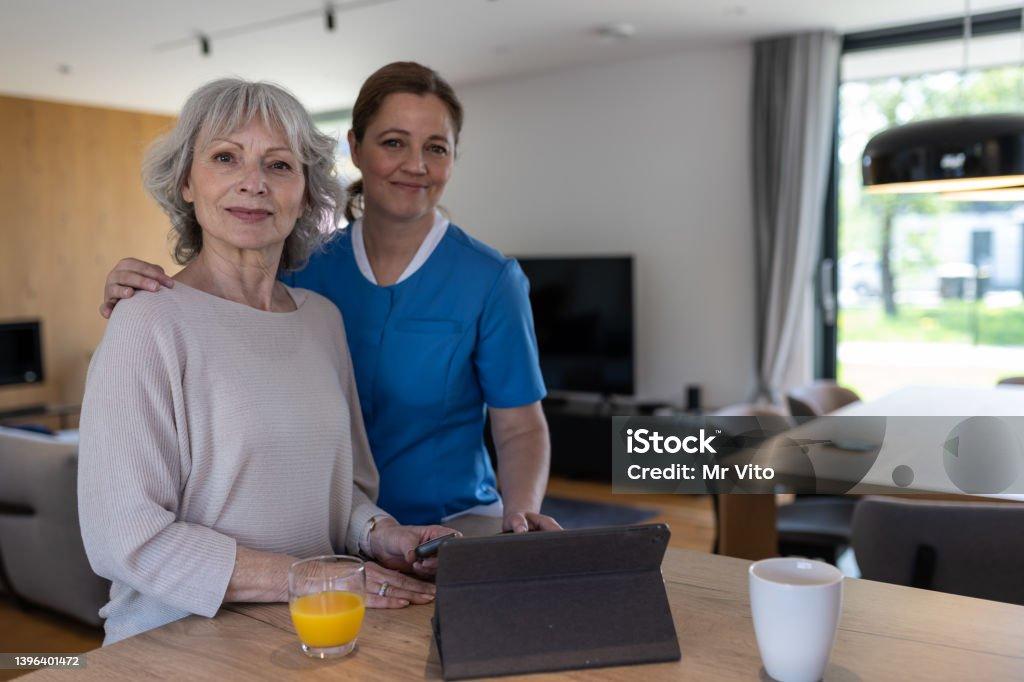It can be a challenge for seniors to admit they need assistance and an even bigger task to help them adjust to the idea of in-home care. Some seniors are not open to strangers coming into their homes and assisting with personal tasks. If you speak together about caregiving options, you can help your elderly loved one open up to thinking about home care. Try these tips for effective communication brought to you by the Home Care Chalfont staff.
-
Choose the Right Environment
When broaching the topic of home care, initiate discussions in a cozy and familiar setting. Seek out a quiet and relaxed environment that fosters open communication without interruptions. Such a setting establishes a conducive atmosphere, promoting a more meaningful and comfortable discussion. The familiarity of the surroundings can help alleviate any potential apprehension, allowing all involved parties to express their thoughts and concerns openly. This approach fosters a sense of ease and receptiveness, contributing to a more productive conversation about the introduction of home care and its potential benefits for the well-being of your loved ones.
-
Establish the Caregiving Relationship
When you choose a home healthcare provider, you will want an organization that hires experienced, professional, and outgoing workers. Establishing a relationship and building trust are two of the biggest factors that can help your loved one accept a caregiver in their home. Let your loved one know it is okay to express doubts. Assure them you want to do everything possible to choose the best caregiver and find a home care provider that takes extra measures to match their clients with the right caregiver.
-
Discuss Hourly and Live-In Care
To help ease the transition into home care, start with hourly care. Talk to your loved one about daily activities they might need help with, like cooking, cleaning, and transportation. This gives your loved one time to adjust and maintain independence instead of suddenly having 24-hour care. However, some seniors may not be able to live independently for any time, which means they need live-in care. This does not mean your loved one will be immediately open to the idea, so make sure to talk about how they will benefit from having someone there to help during all hours of the day.
-
Explain Backup Care
Especially for seniors who require live-in care, there will be times when the primary caregiver will not be available, and the home care provider will need to send substitutes. Introduce your loved one to the aides that serve as backups to the primary caregiver and explain why having a backup is necessary. Your loved one will likely feel more comfortable after getting to know everyone taking care of them throughout the day.
-
Highlight the Positives of Home Care
In conversations about home care, it’s crucial to highlight the positive aspects, emphasizing the added safety, companionship, and assistance with daily activities that come with it. Encourage seniors to perceive home care as a valuable resource to amplify their independence and overall quality of life, reframing it as a tool for empowerment rather than a relinquishment of control. By focusing on the benefits, seniors are more likely to embrace the idea, recognizing it as a personalized and supportive solution crafted to enhance their well-being and maintain their desired level of autonomy.
-
Share Real-Life Stories
Give real-life examples of how home care has made a positive difference in people’s lives. Share stories about individuals who felt better and happier with the help of home care. These stories can be comforting and ease worries, showing that getting assistance at home can positively change someone’s well-being. Sharing these examples helps seniors and their families see that home care can be helpful.
Seniors usually fare better when they can stay in their homes, making it important to help your loved one embrace the idea of home care. Effectively discussing home care with seniors requires a considerate and understanding approach. By openly communicating about home care options, your loved one may become more accepting of having a caregiver at home. If you have questions about the type of home care needed, contact reliable Chalfont Home Care. We provide flexible hourly and live-in care plans tailored to your loved one’s needs. Remember, the aim is to ensure the senior’s well-being and happiness, and effective communication plays a crucial role in achieving this goal.



